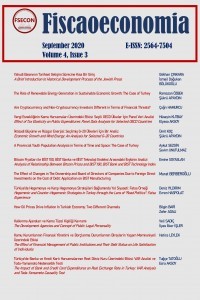
Fiscaoeconomia
Yazarlar: Yavuz YAYLA
Konular:Sosyal Bilimler, Disiplinler Arası
DOI:10.25295/fsecon.2019.01.004
Anahtar Kelimeler:Sovereign Wealth Funds,International Economy,Economic History
Özet: One of the most controversial financial tool that has been come into the agenda in recent years is the Sovereign Wealth Funds (SWF) reached globally USD 7 trillion 450 billion and it reached USD 40 billion in our country. The SWFs which are formed on account of certain macroeconomic and microeconomic causes, are at the position to affect either domestic or international economics. These funds are generally formed through budget surpluses or the revenue to be gained from natural sources such as oil. The most important discussion and critics on the SWFs is the formation of these funds with public resources. Especially, the countries having not export surplus or natural resource revenue recently started to form these funds. In this paper, we will have a look on economic and political developments of the SWF since 1816 when the Crédit Mobilier was formed until today. Additionally, the aims of formation, functions, resources and audit of the SWFs will be considered. Finally, the properties of the sovereign wealth fund to be formed in Turkey will be examined to figure out the advantageous and disadvantageous it may cause for the economics.